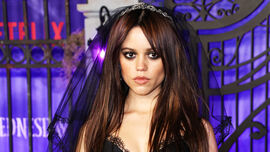The Rings of Power is a Prime Example of a Very Disturbing Trend

The finale of The Rings of Power Season 1 confirmed the prevalent fan theory of Halbrand, whose adventures with Galadriel we have watched for most of the season, being a form of Sauron, the big bad of the whole Middle-Earth's setting and the enemy whom Galadriel was trying to pursue for 8 episodes.
This was not exactly a great surprise, once again, the idea of Halbrand = Sauron was prevalent in the fanbase.
However, this was another example of an increasingly disturbing trend to portray villains who were never supposed to be any sort of complex or sympathetic characters, up to and including one-dimensional Disney villainesses, and even Satan himself, as the Lucifer series (currently on Netflix) evidences, in more or less sympathetic light.
In terms of malevolence and danger to everyone else, Sauron is one step away from Satan, whether you're familiar with Sauron's deeds from the books or from Peter Jackson's movies, and while technically The Rings of Power makes it clear right away that this "Halbrand" character is up to no good…
Well, technicalities are technicalities. Anyone can tell that the fans' love towards Halbrand was not an unintended effect, after the showrunners cast a handsome, charismatic actor (Charlie Vickers), who overshadows most of the rest of the cast, for this role and gave him plenty of scenes and lines which can be readily interpreted as indicating genuine internal conflict or sympathetic motives, rather than calculated deception.
Similarly, the obvious romantic undertones of interactions between Halbrand/Sauron and Galadriel, which already have inspired shippers and fanfic writers, could not possibly be unintentional. You will have better chances arguing that Daemon Targaryen from The Rings of Power's main fantasy competitor, House of the Dragon, was not intended by the showrunners to become as popular with the fans as he did, in spite being a cold-blooded murderer whose very existence serves as a major factor, pushing the country towards civil war (and even that would be a pretty weak argument, given how many chances to act cool they provided to Daemon) than arguing that the audience was not supposed to like Halbrand. And not in the way people sometimes like irredeemable, card-carrying villains, either.
For sure, canonically Sauron did start with good intentions, and in the Second Age of Middle-Earth he was supposed to be a corruptive, seductive presence, assuming pleasing and charismatic forms. But the trend he exemplifies is as unmistakable as it is unpleasant. What's next, romanticizing real-life serial killers? Oh, wait, Ryan Murphy's Dahmer just did so.
